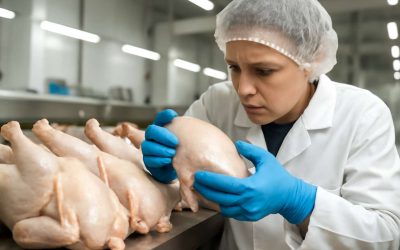
Incubators are machines that keep eggs warm and a certain humidity level for the 21 day incubation period. They can be as simple as a plastic foam cooler with a thermometer and a humidity gauge, or as complex as a specialized incubating machine. Poor results are caused by incorrect temperature and humidity levels, as well as by improper egg turning and ventilation.
Fertile chicken eggs require special care to ensure that they will hatch into healthy chicks. They should be carefully inspected and cleaned before being placed in the incubator. Slightly soiled or dirty eggs are fine, but they should not be allowed to soak in water as this can cause bacterial infections and prevent the embryo from hatching. Eggs should also be marked, preferably with pencil (not a pen or marker) before placing them in the incubator. This will help to prevent mistaking one egg for another and will remind you to turn them three times a day. It is recommended to use the egg numbering system that most commercial egg incubators use, but if you prefer a simpler method, you can simply mark each egg with 1,2,3, or A, B, C. The purpose of marking the eggs is to remember to turn them; as the incubation process progresses it is easy to forget to turn them, and this can result in failed hatches.
A good incubator should have unobstructed ventilation holes at the top and bottom of the machine. Ventilation is necessary to allow oxygen in and carbon dioxide out to satisfy the increased demand of the developing embryo. In addition, the ventilation system should be able to regulate air flow throughout the machine, preventing hot spots that can damage the eggs.
It is also important to ensure that the incubator is properly cleaned before starting the incubation cycle. It should be washed with a 10% bleach solution and rinsed with warm water. After cleaning, the incubator should be placed in a safe and secure place where it will not be disturbed or subjected to any drafts. It is also important to be careful when opening the incubator to avoid heat and moisture loss, as this can also affect hatching success.
Eggs should be kept in the incubator until they are ready to be hatched, but if you need them sooner than this, it is possible to hatch them in a colder environment. However, it is recommended that you only do this if the climate in which you live will be warm enough to provide the necessary warmth.
The egg turning process in an incubator should be done at least 3 times a day for the first 18 days of the 21 day incubation cycle. This is because it mimics the way that a mother hen turns her eggs in nature and helps to ensure that the yolk stays centered and does not stick to the side of the shell. Most incubators have a mechanism for this purpose, but if you find it difficult to keep up with the turning, you can purchase an automatic egg turner for your incubator.



0 Comments